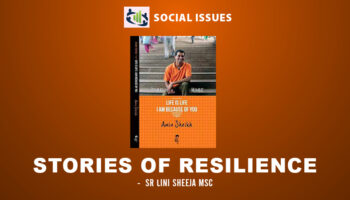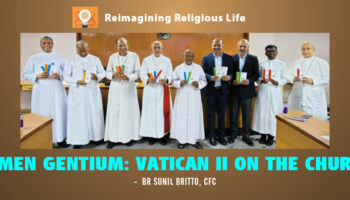“Just as these eyes sensibly see and recognize the face of a friend or a loved one, so also the eyes of the worthy and faithful person, being spiritually enlightened by the divine light, see and recognize the true Friend—the Lord, since the soul is completely illuminated by the adorable Spirit.” (Homily XXVIII/5)
Pseudo-Macarius was an early proponent of ‘light’ or ‘Tabor’ mysticism that emphasized the transformation and enlightenment of a person through the ineffable light of the Holy Spirit. His spiritual insights can be found in a collection of texts, principal among which are the Fifty Homilies. The identity of this spiritual classic’s author has been problematic. During the early centuries there were two important persons by the name Macarius – one from Alexandria and another from Scete. The second Macarius was a very great spiritual master and until the 19th century these writings were attributed to him. However, modern research reveals that this second Macarius was not the author and therefore the writer of the Homilies is now referred as Pseudo-Macarius. Based on an analysis of the text, it is presumed that this person was a Syrian monk and came from an educated and cultured background. He was a citizen of the Roman Empire and comparisons from the political, military and economic world reveal that he was probably part of the army or involved in imperial administration. Two salient features of his ‘light’ spirituality are: a) unceasing prayer and b) a growing ability to discern one’s thoughts.
Unceasing Prayer: Pseudo Macarius exhorted all to pray unceasingly. He emphasized the basic goodness of the human person (Homily 15) and stated that in creation God willingly shared God’s beauty and nature with the human person. As against this, the Messalian heresy, which also spoke of unceasing prayer, believed that the human person was intrinsically sinful and even baptism was not sufficient to free a person from original sin. The only way out was unceasing prayer – where prayer was understood as a life of intense ascetical practices, avoidance of manual labor, negation of sacraments and rejection of church structures. Pseudo-Macarius accepted that goodness had been lost by sin, but it has been restored by the Risen Lord. To pray unceasingly did not consist so much in self-centered ascetical practices, as the Messalians said, but by constantly living in the presence of God. Such a person realized one’s total dependence on God and through the virtue of humility grew in an ardent longing for God. An authentic life in the Spirit allowed the Divine light to transform a person leading to growing spiritual enlightenment.
Discerning One’s Thoughts: Pseudo-Macarius pointed out that there was no short cut towards enlightenment but that it involved a prolonged process of growing in virtues and overcoming one’s passions. Both sin and grace co-exist in a person and the perfection of baptism grows slowly within a person. In the spiritual combat between good and evil there may be momentary peace and joy, but one needs to be vigilant at all times. Of special importance was the need to discern one’s thoughts because deceptions entered through evil thoughts or more subtly through seemingly good thoughts. Hence it was very important to know the source of the thoughts – whether they came from God, from the false spirit or oneself. Spiritual enlightenment thus consisted in continual prayer and discernment leading to greater co-operation with grace, openness to the Holy Spirit and participation in Divine life.
The spiritual wisdom of Pseudo-Macarius has had tremendous influence on Christian spirituality. Groups as diverse as Greeks, Syrians, Russians, Franciscans, Jesuits, Pietists, Methodists and neo-Pentecostals have been influenced by it. In our age of frenzied activity, the insights of Pseudo-Macarius regarding ‘unceasing prayer’ enlighten us towards greater discernment of our inner movements, help us remain focused on Christ and thus realize the Kingdom within and around ourselves.
Fr Francis Pudhicherry SJ
To subscribe to the magazine, click Subscribe





